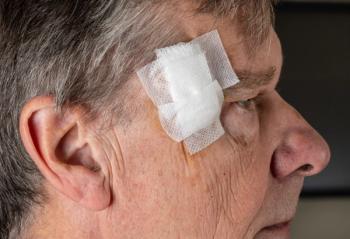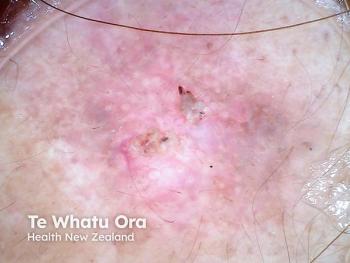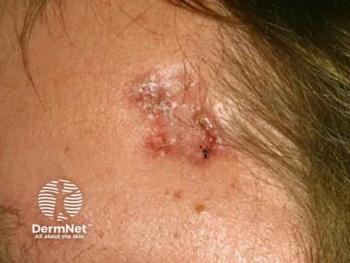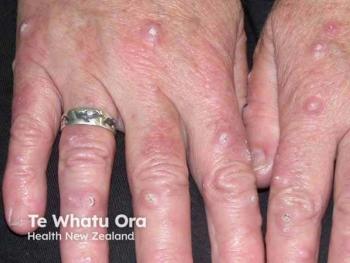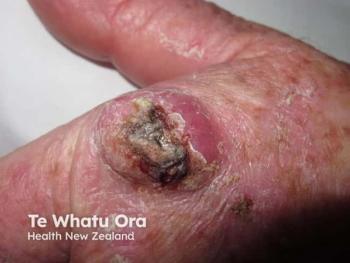
- Dermatology Times, March 2020 (Vol. 41, No. 3)
- Volume 41
- Issue 3
Vaccine shows promise in advanced melanoma patients
Positive outcomes with an experimental vaccine provide hope for patients with stage IIB and IIC melanoma.
An experimental vaccine being studied in patients with stage IIB and IIC melanoma is demonstrating positive outcomes in recurrence-free survival and a favorable adverse event profile, one expert says.
The experimental vaccine offers hope to a patient population in need of more effective therapies with far fewer and more tolerable adverse events, particularly when compared with currently available therapies for this patient population, says Craig L. Slinglu Jr., M.D., professor of surgery, director of the human immune therapy center and co-leader of the cancer therapeutics program, UVA Cancer Center, Charlottesville, Va.
“Interferon is the only treatment that is currently approved for stage IIB and IIC melanoma after surgery,” he says. “Because of its associated toxicity and the variability in the benefit seen in different trials; however, a need for better treatment options perhaps in the form of a vaccine could prove very useful in this subgroup of patients.”
The MAVIS (Melanoma Antigen Vaccine Immunotherapy Study) clinical trial is an ongoing multicenter, double-blind, placebo-controlled, phase 3 clinical study investigating seviprotimut-L (Polynoma LLC), an experimental allogenic, polyvalent, partially purified shed melanoma antigen vaccine derived from three proprietary human melanoma cell lines. It is designed to stimulate the patient’s humoral and cellular immune responses.
Researchers are examining the safety and efficacy of the vaccine with primary endpoints of RFS and overall survival (OS) in patients with American Joint Committee on Cancer (AJCC) stage IIB/C, IIIA, IIIB/C melanoma at high risk of recurrence after definitive surgical resection.
A total of 347 subjects, aged 18 to 75 years, were randomized 2:1 to receive seviprotimut-L 40 mcg or placebo, administered intradermally every two weeks divided into five injections, then monthly divided into four injections, then every three months to month 24. Patients were stratified by stage (IIB/C, IIIA, IIIB/C).
The analysis of subgroups based on preplanned stratification suggested an enhanced RFS for seviprotimut-L in subjects with stage IIB and IIC melanoma, as well as those under 60 years of age.
Moreover, seviprotimut-L was also very well tolerated by subjects, akin to those patients who received placebo. Adverse events were mild, localized and transient in nature following topical treatment.
“I think that what we have achieved so far with the seviprotimut-L vaccine is major progress for melanoma vaccines. A lot of the other studies that are currently underway are very much early development trials looking for earlier signals. Our study is a randomized, placebo-controlled trial that has shown promise for benefit in this particular subgroup of melanoma patients for which current treatment options are suboptimal and need to be improved,” Dr. Slinglu says.
In view of the toxicities associated with the currently used therapies for melanoma, Dr. Slinglu says that there is a de nite niche in which novel vaccines like seviprotimut-L could fit for melanoma patients with stage IIB and IIC following surgical resection. There are immune therapies with checkpoint blockade that are currently approved for patients with advanced disease, as well as those with resected stage III and IV disease; however, there is nothing approved for stage II disease.
“The toxicity associated with checkpoint blockage is not very high, but it can be significant. Moreover, there can be serious toxicities that are long-term, which I think have to be balanced against the potential benefit for patients with stage II disease who are at lower risk than patients with stage III disease,” Dr. Slinglu says.
The experimental seviprotimut-L vaccine with its low toxicity profile and proven benefit in the randomized trial just for stages IIB and IIC makes it very appealing in that sub population. According to Dr. Slinglu, this opens a clear path forward to do a randomized trial that focuses on that subset of patients.
“There is no other truly effective treatment that addresses stages IIB and IIC following surgery. I think clinical trials remain good options for patients with stage II disease and, hopefully, this low toxicity vaccine approach will be available to patients soon,” Dr. Slinglu says.
Disclosures:
Dr. Slinglug reports no relevant disclosures.
Articles in this issue
almost 6 years ago
Rhinophyma treatment, prevention strategiesalmost 6 years ago
Adjunct therapies may support fractional CO2almost 6 years ago
New concepts in cosmeceuticals: Body rhythm moisturizersalmost 6 years ago
Pulsed dye laser may improve nonvascular conditionsalmost 6 years ago
Atopic dermatitis patients need better disease controlalmost 6 years ago
Postprocedural wound care critical in resurfacingalmost 6 years ago
US patients participating in risky skin lightening practicesalmost 6 years ago
Anti-TNF therapy efficacy differs by genderalmost 6 years ago
Topical rosacea cream creates new treatment paradigmalmost 6 years ago
Can I pay a patient to leave my practice?Newsletter
Like what you’re reading? Subscribe to Dermatology Times for weekly updates on therapies, innovations, and real-world practice tips.

